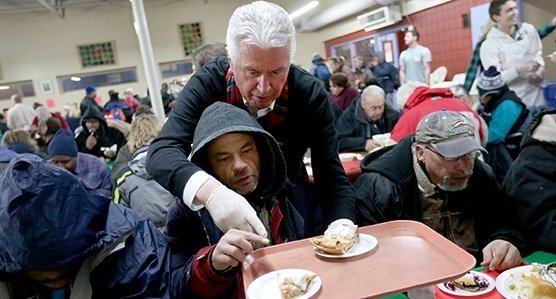Exploitation and Social Media: It's more common than you think...
We've all seen it - the post that tugs at the heart strings...a child helped with a life-changing surgery....a homeless man fed and clothed....a family fed Thanksgiving dinner.
We are in an age of selfies and immediate sharing of everything we are and do. But when we are involved in charity, what is the difference between sharing what we do as a nonprofit or a ministry and exploitation of those we help? Let's start with the definition. Exploitation is the action of making use of a situation to gain unfair advantage for oneself. I am more and more bothered by the number of posts on social media that cross this line. It's a thin line and a rather grey one at that. So I offer you some thoughts to ponder. Consider these four questions before you rush to put that picture or video on your social media platform of choice......
Who is in the picture? If your picture is you, volunteers, or staff standing in front of a building, then it's likely not exploitative. Sharing what you do, why you do it and who you help can be informative to those who want to support your work. But are you rushing to get the selfie with this poor woman you just helped get off the streets? Or is your photo caption sharing someone's plight with you as the hero? Anytime you tell other people's struggles, difficulties or testimonies to promote yourself, it's exploitative. Do not use the plight of others to show your self-righteousness.
Do you have permission? Don't ever snap a picture without permission. Ever. Don't ever share someone's personal story without permission. Ever. Even with permission, consider that people in poverty or high levels of distress are commonly exploited to get help. Too often help comes with strings and sadly some people have come to expect that. Check your motives first then get permission before you use their face or their story and do it tastefully and respectfully.
Do you change what you are doing when the cameras show up? People in crisis are often helped by charitable response teams -whether they are a nonprofit helping a family displaced by fire or mission organizations serving families in refugee camps or disaster teams helping communities devastated by a tornado. If you help more when the cameras show up then you're using the tragedy for self-promotion....that's exploitative. If you stop serving those in need to get the interview with the press then you are using the plight of someone else to make yourself look good...that's exploitative. Help because you want to help. Don't let the media coverage or photo opportunity dictate to what extent and how you help.
What's your motive? Here's the real key. Why are you posting this on social media? If your motive is to self-promote, make your organization look good, or give you warm fuzzies about how generous you are...then it's likely exploitative. Again, using someone else's struggle or crisis to make you look like the hero is exploitative.
And for those ministries among us, the standard is even higher. Be careful not to perform your righteous acts before men to be seen by them. If you do, you will have no reward from your Father in heaven. So when you give to the needy, do not sound a trumpet before you, as the hypocrites do in the synagogues and on the streets, to be praised by men. Truly I tell you, they already have their reward.... Matt 6: 1-2.
Social media is an incredible tool but we have a strong responsibility in the charitable sector to use it responsibly.
-Mindy Muller, CFRE, President/CEO of CDP

